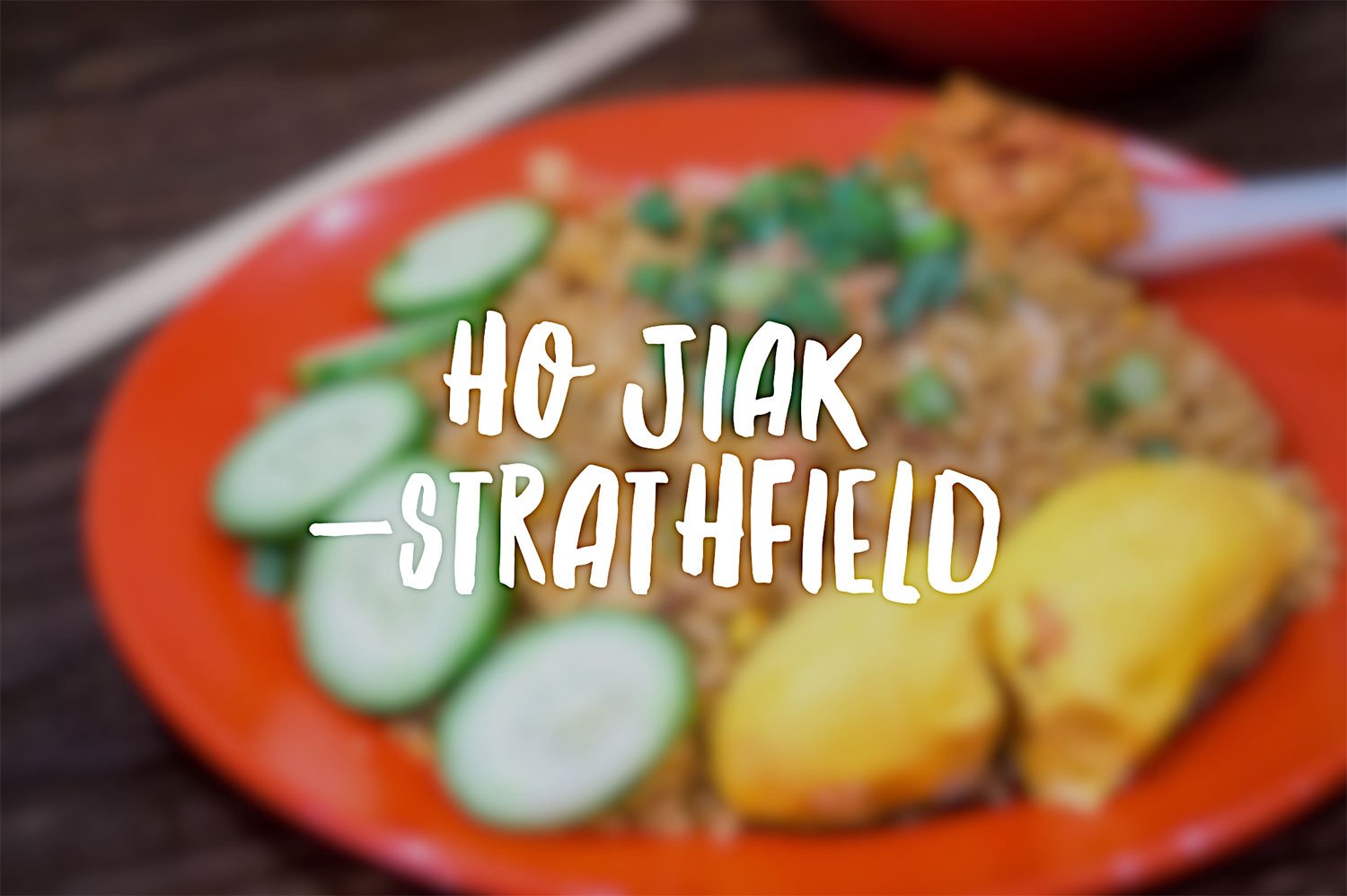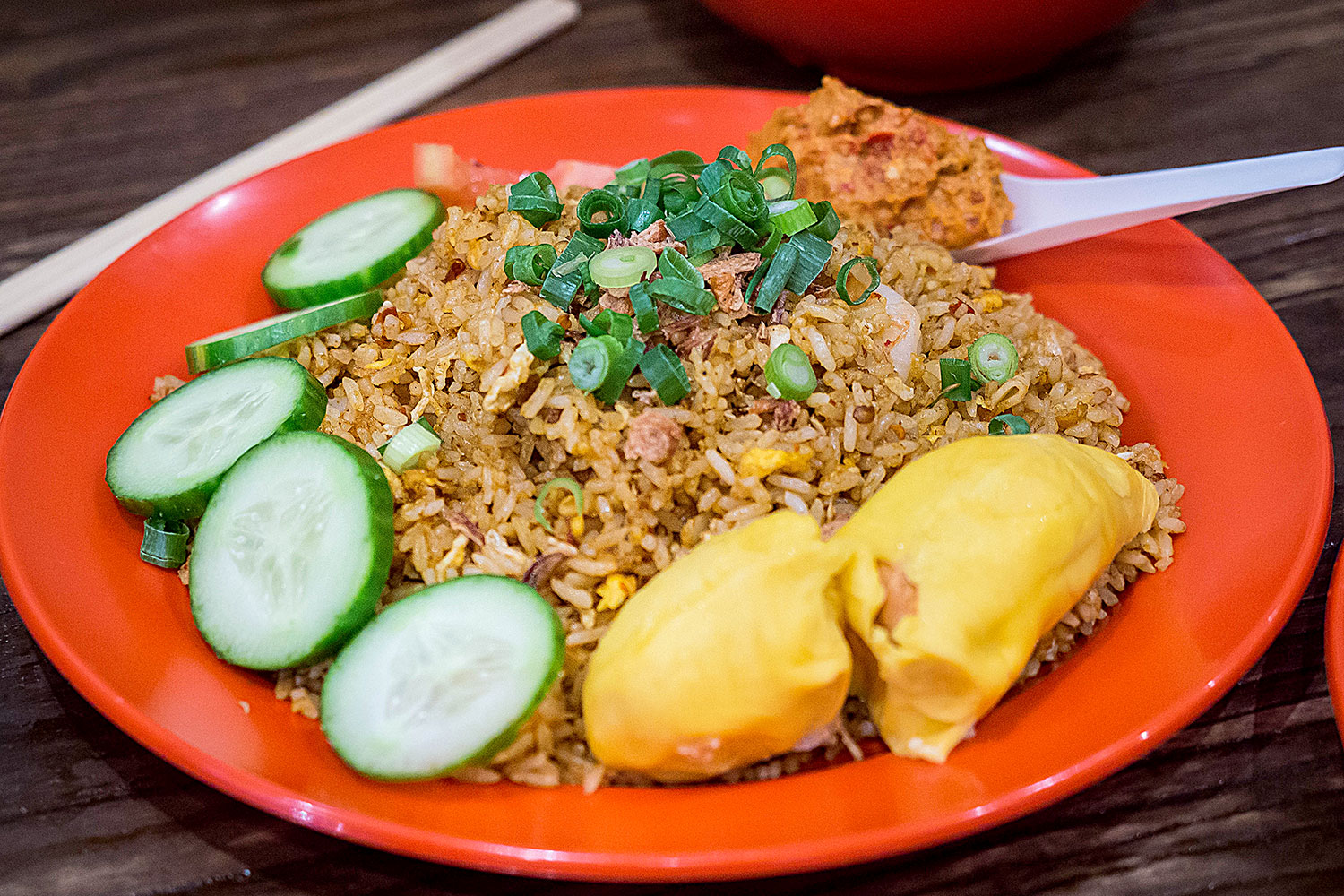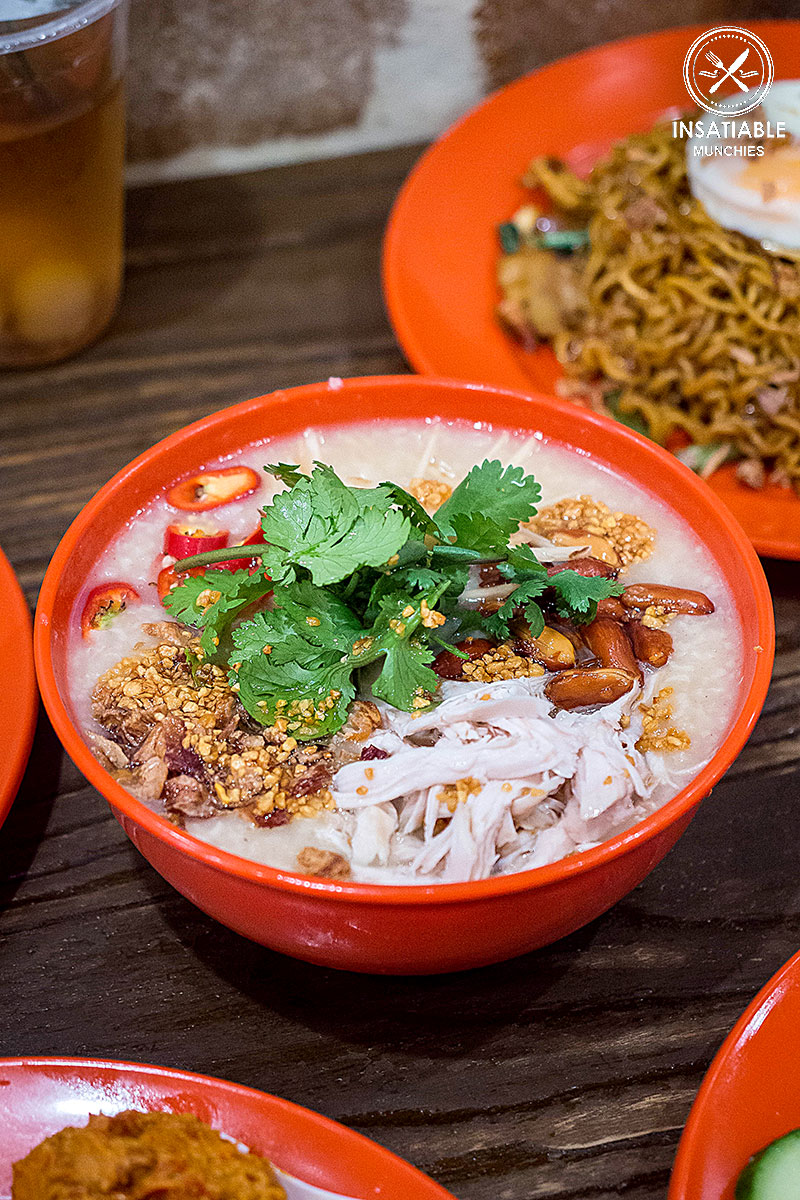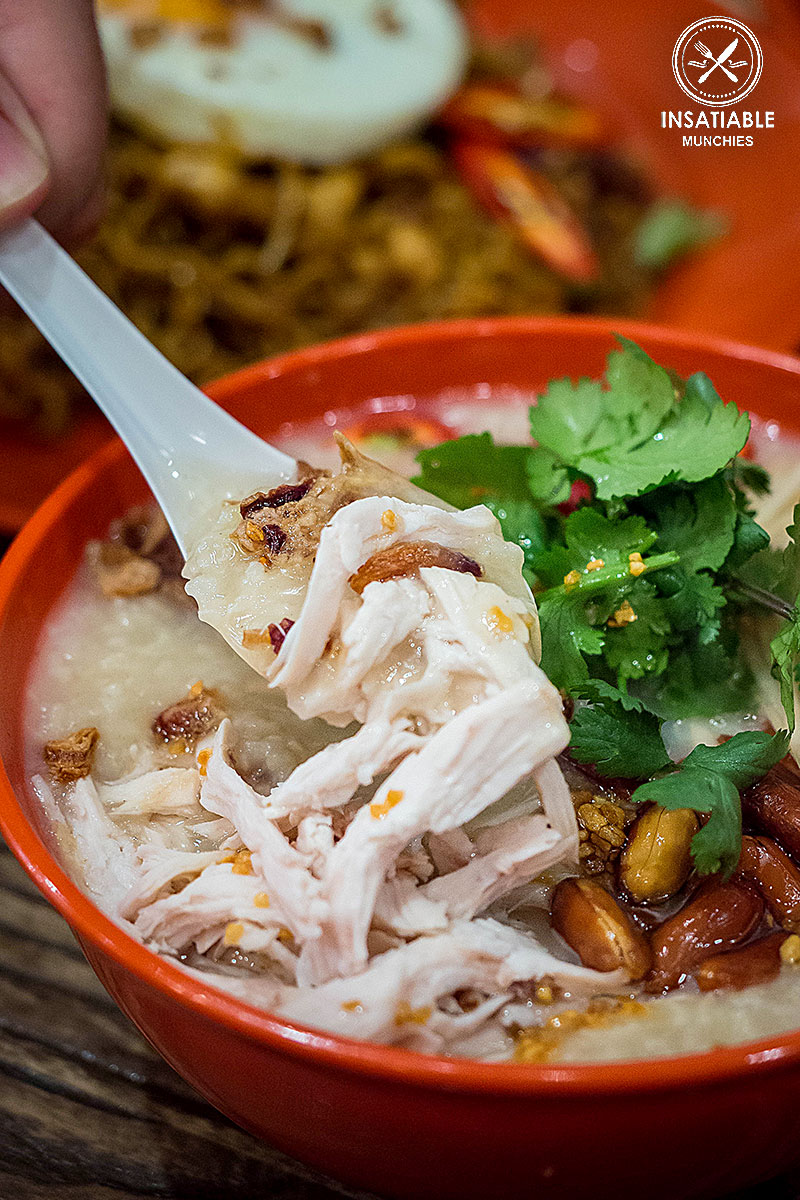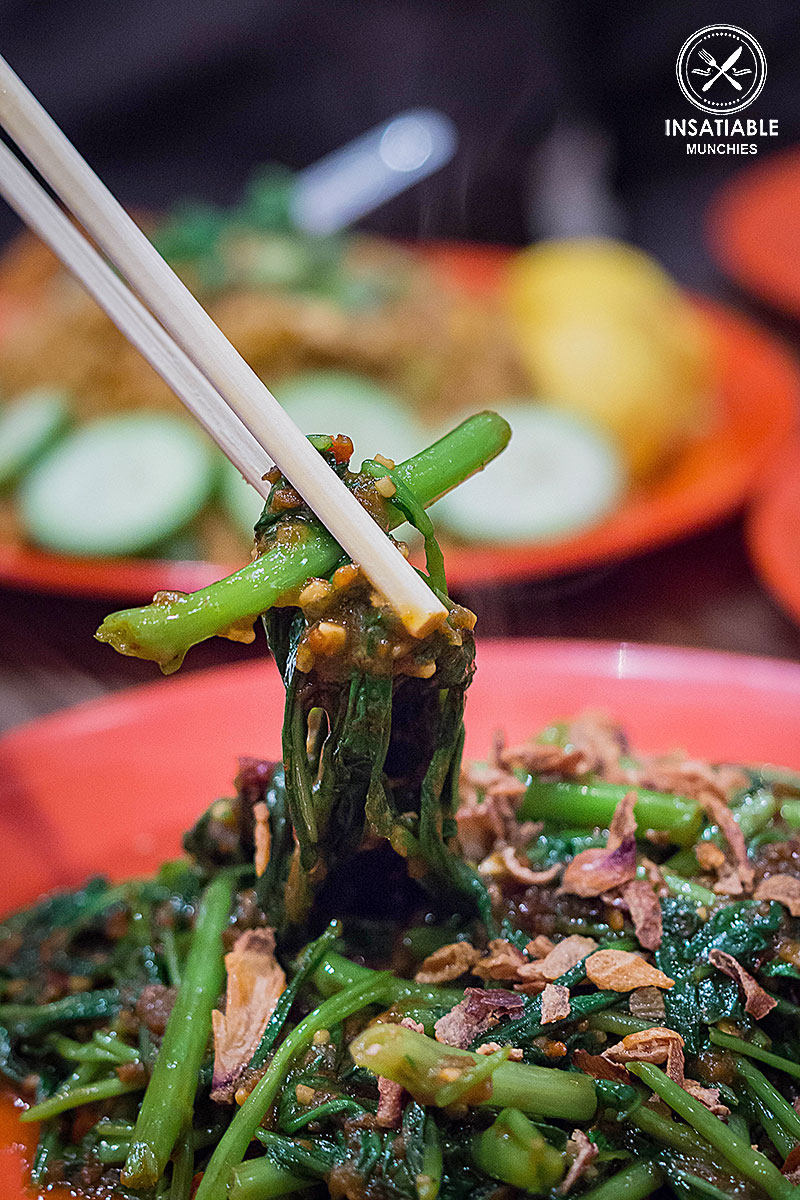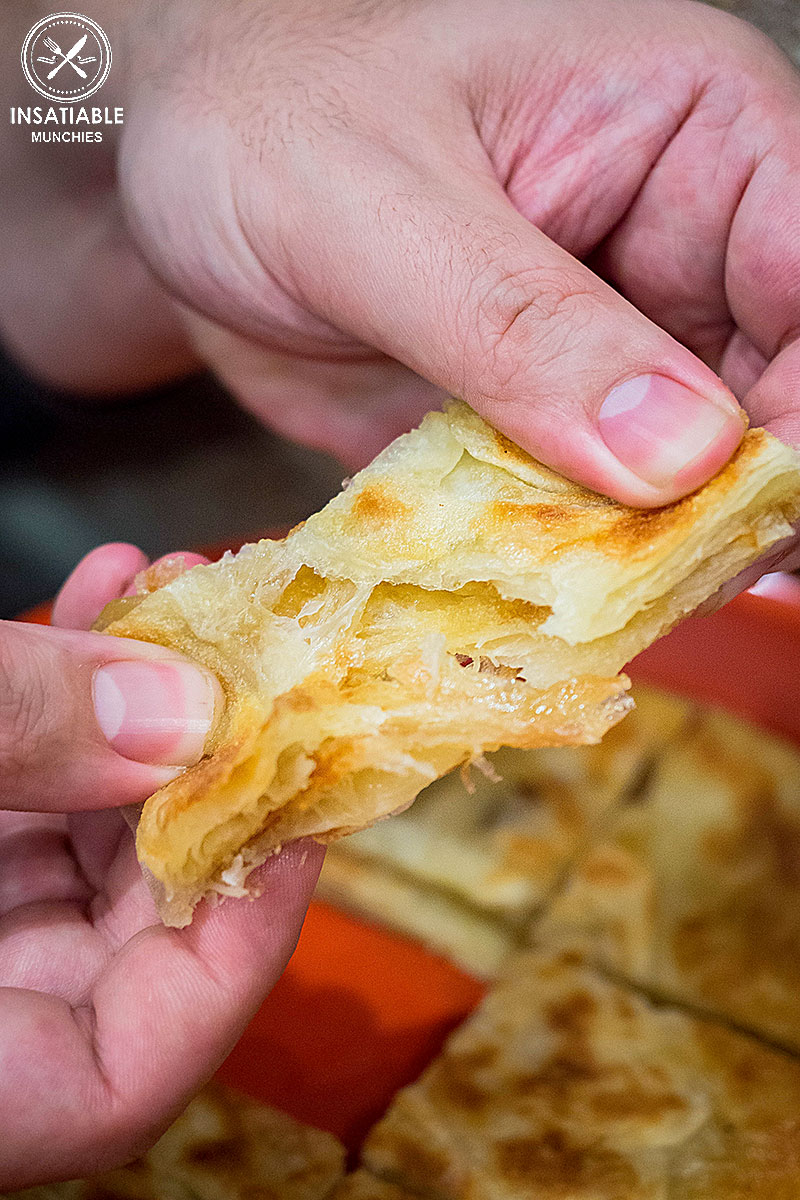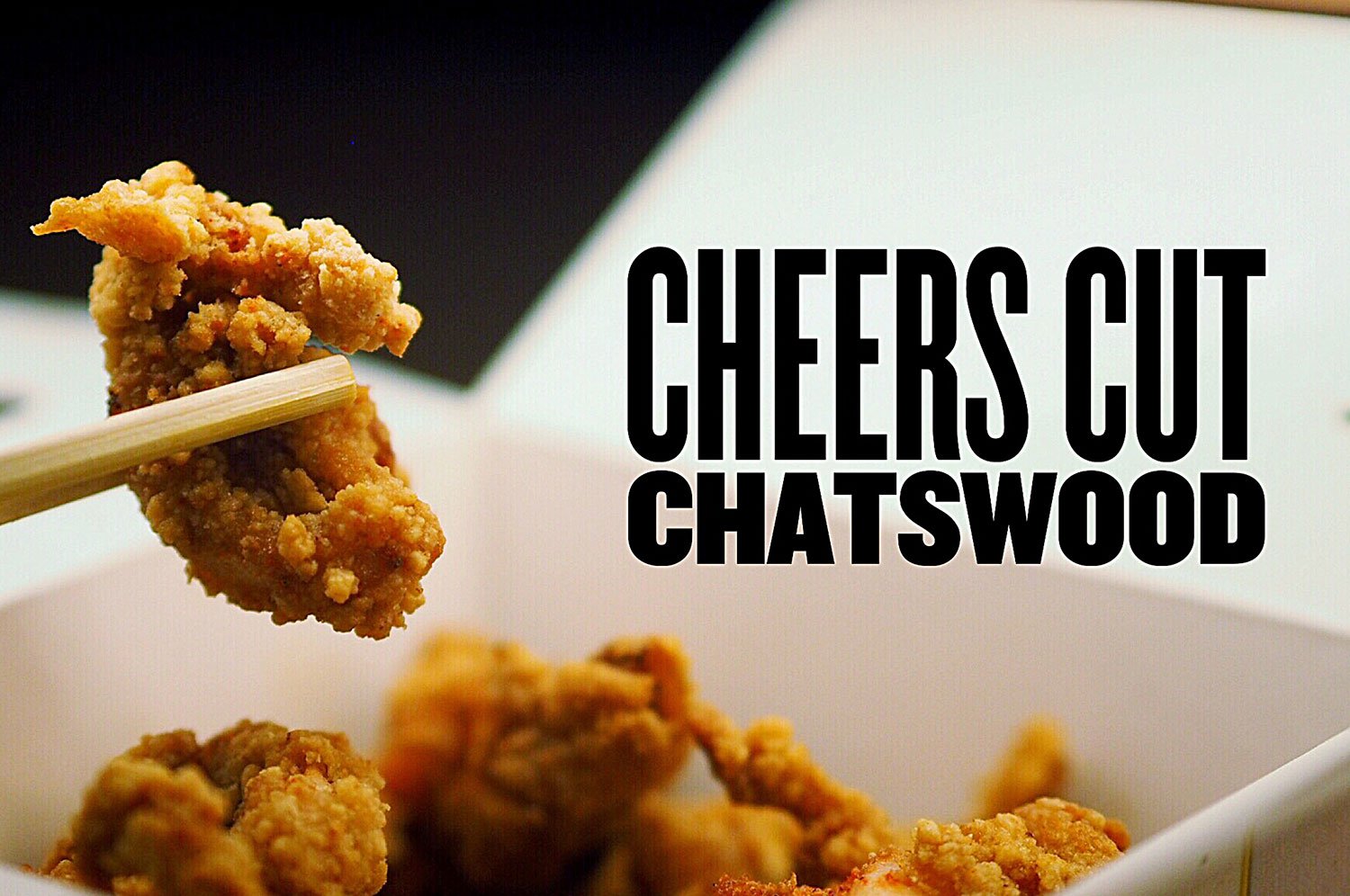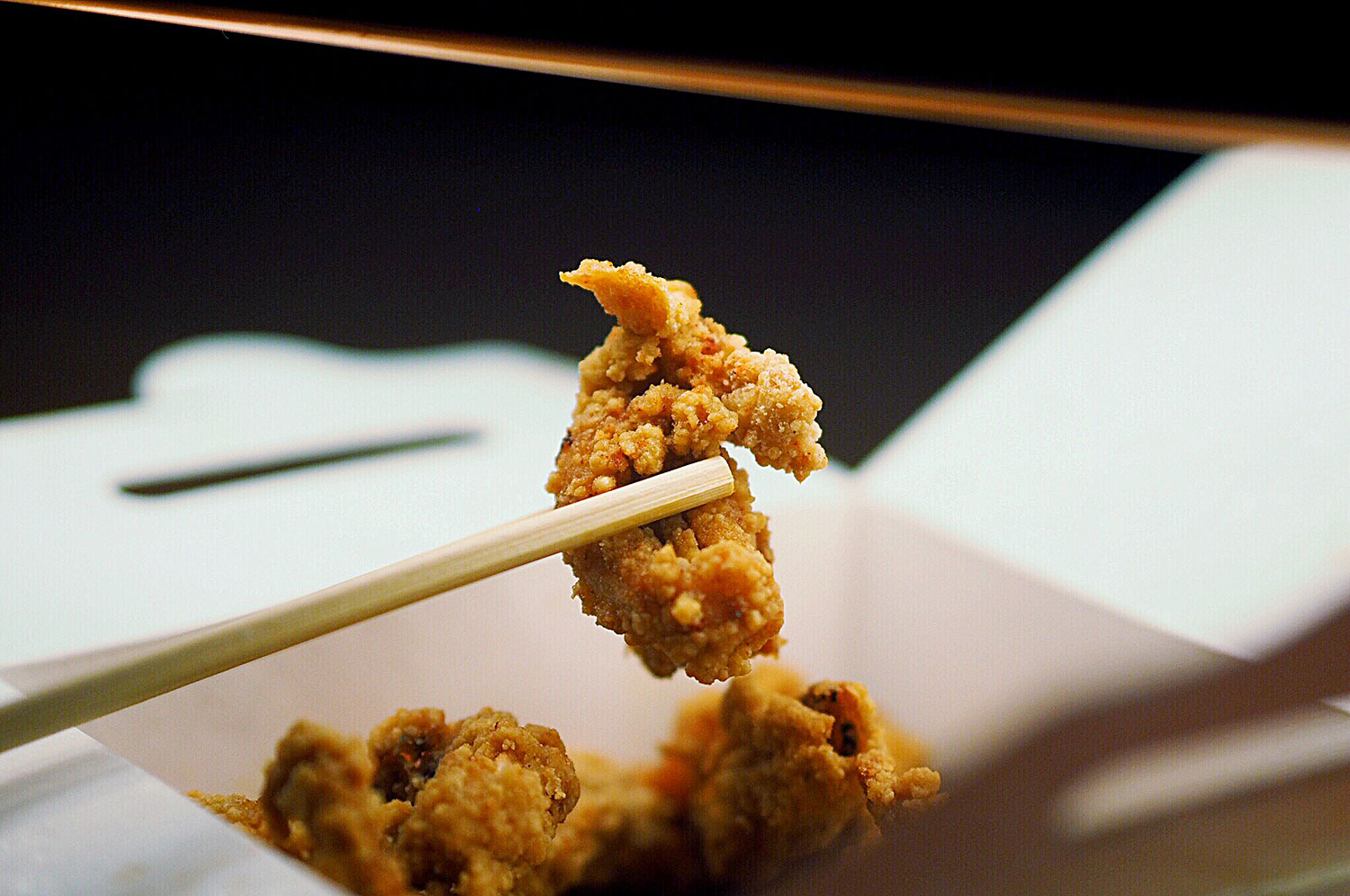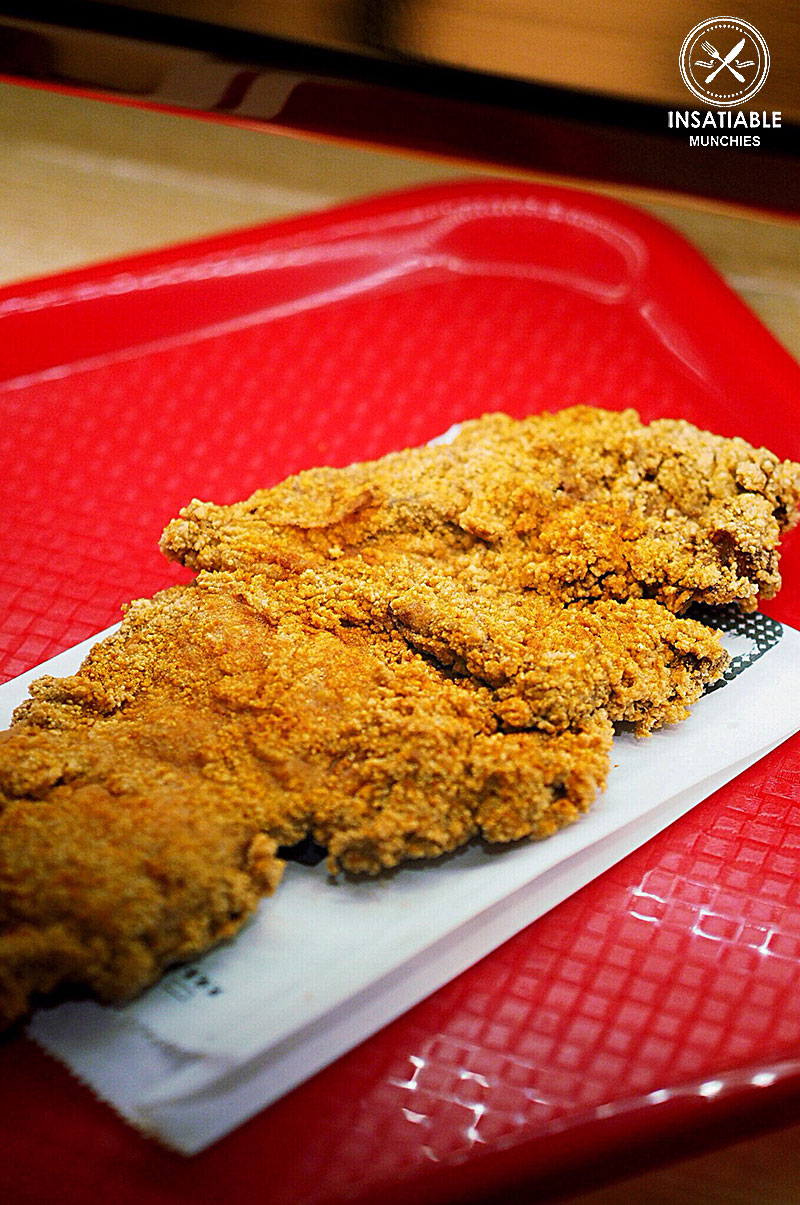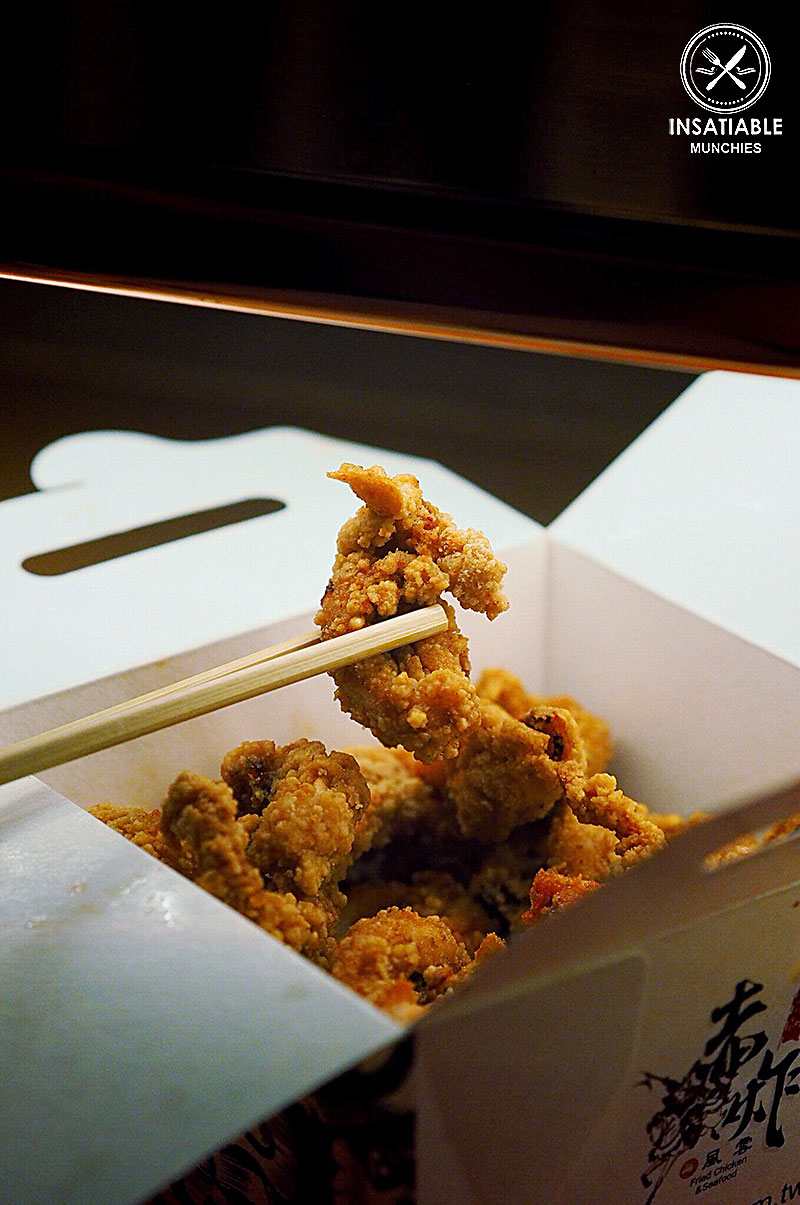There are just some times when a simple “yum” isn’t enough to describe just how awesome the food is, which is why in Singapore and Malaysia, we have another phrase: “Ho Jiak” translates to “Good Eats”, and it’s usually applied to situations where the food, surroundings, weather, moon and stars align to give you a sublimely delicious experience.
Sometimes we may also apply the use of it’s more powerful cousin: “shiok”.
Either way, I think you’ve gotta be pretty confident to plaster it all over the front door as the name of your restaurant, like Ho Jiak have done in their unassuming space in Strathfield Plaza.
The Order:
Indomie Goreng Lobster (Special)
Nasi Goreng with Musang King Durian (Special)
Nasi Pattaya (with added fried chicken), $15.80
Malaysian fried rice placed inside an omelette
Grandfather’s congee, $12.80
Homemade chicken congee, served with fresh herbs
Sambal Kangkung, $12.80
Roti Kaya, $8.80
The Food:
Southeast Asian food is like My Fair Lady to me (warning: musical nerdness ahead): it’s rough, unpolished and charming, with the option of being elevated to great heights. At Ho Jiak, the food is definitely charming, bringing forth a blast from the past that would make Marty McFly proud.
The Grandfather’s Congee came with a strong recommendation, and it ticked quite a few boxes for me. Shredded poached chicken, peanuts, chilli, and a generous lashing of julienned ginger brought me right back to Saturday mornings growing up where my mother used to cook up a homely Saturday lunch for when my dad came home from golf. All that was missing was pork meatballs, but to be perfectly honest, I think that was a delicious riff on my mother’s part.
Hong Kong style congee enthusiasts might get a rude shock, however: the Southeast Asian style is much more watery and roughly cooked (see what I mean by “unpolished”?), and more strongly flavoured than the pure, sweet rice flavours of HK.
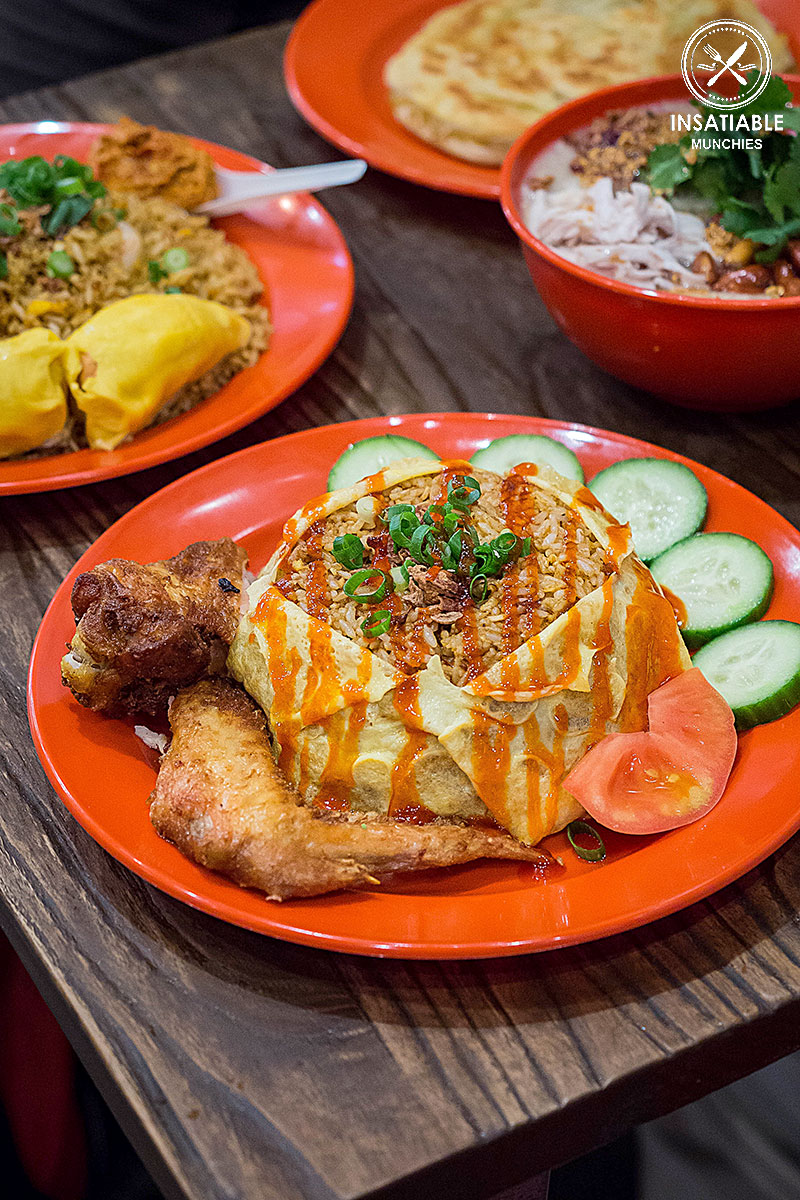 Nasi Pattaya (with added fried chicken), $15.80
Nasi Pattaya (with added fried chicken), $15.80
The Nasi Pattaya is basically a Nasi goreng (fried rice) served in an omelette package for that “wow” factor. The rice was decently flavoured, and the egg was tender, but there wasn’t any particular pizzazz that triggered memories for me. And as someone who has grown up in Singapore, I’ve eaten many a Nasi Pattaya, so this one should have been a clear hair-trigger.
Passable, but nothing to write home about.
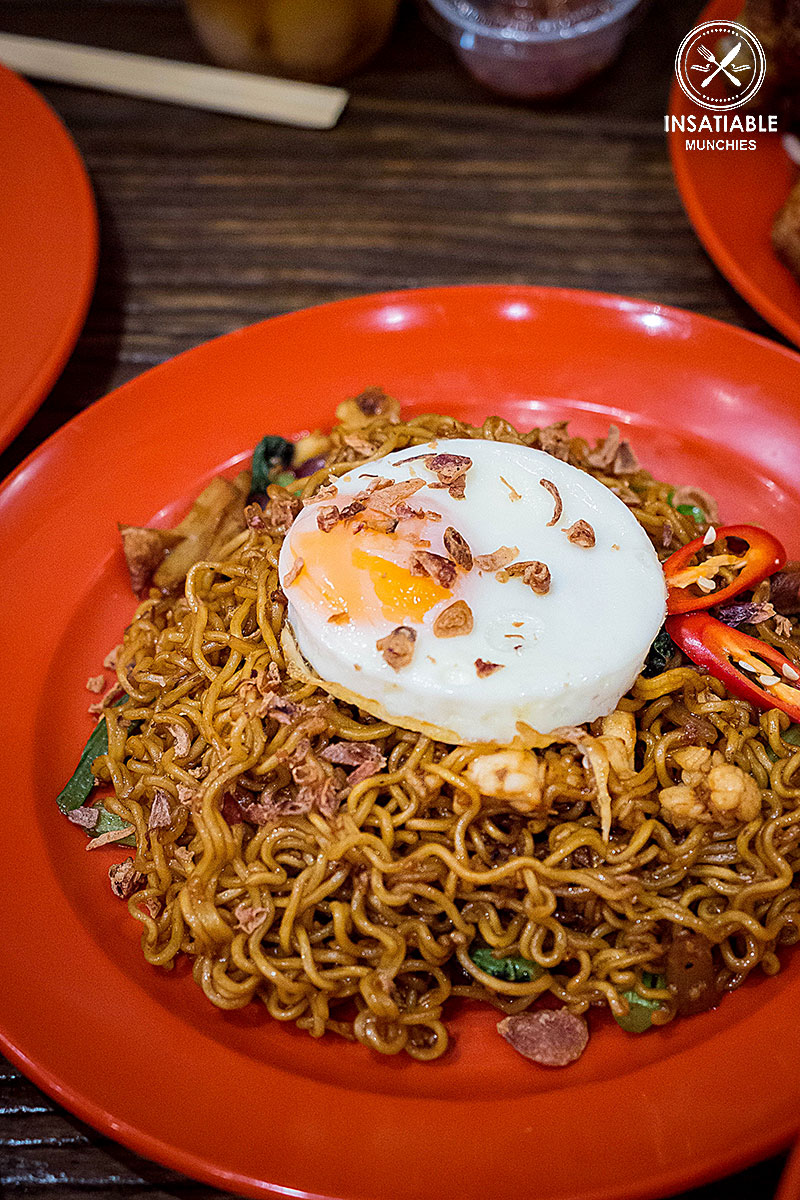 Indomie Goreng Lobster (Special)
Indomie Goreng Lobster (Special)
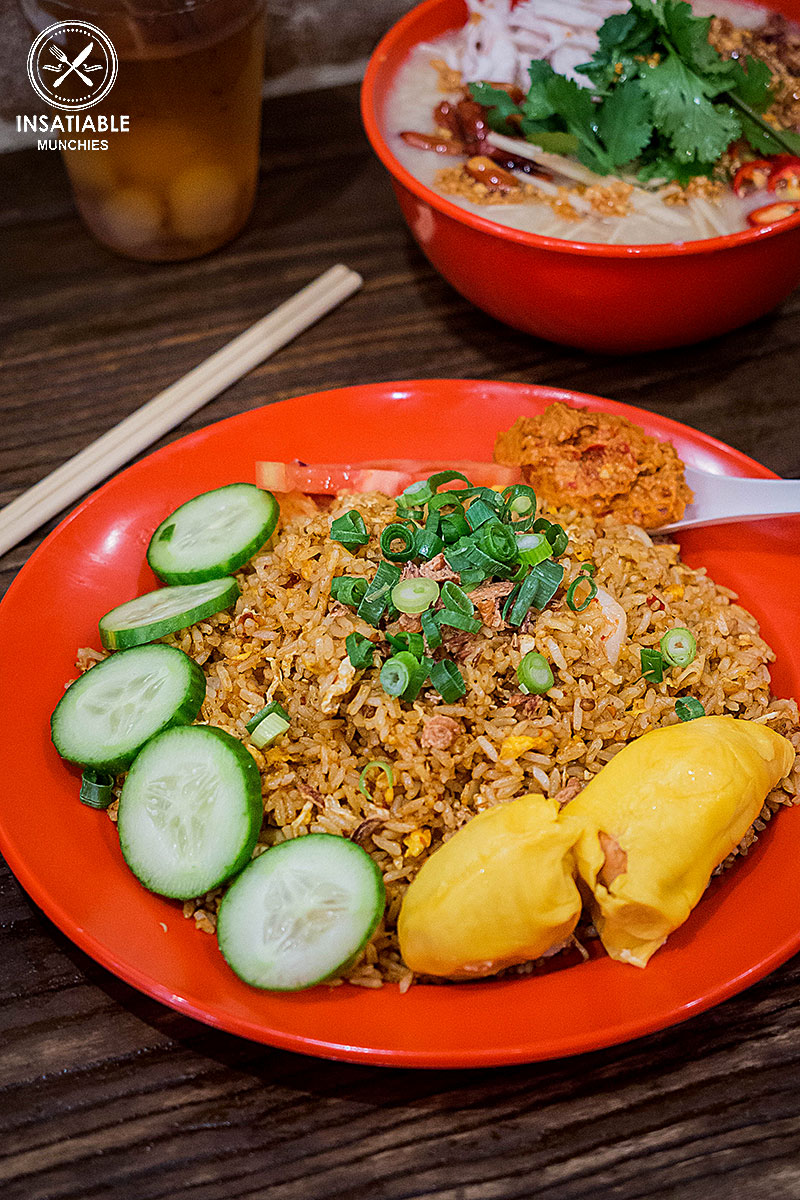 Nasi Goreng with Musang King Durian (Special)
Nasi Goreng with Musang King Durian (Special)
If you’re feeling adventurous, you can order the Indomie Goreng Lobster and the Nasi Goreng with Musang King Durian from their specials board. Yes, you didn’t read it wrongly: there is a fried rice on there with DURIAN.
The Nasi Goreng with Musang King Durian was the same fried rice base as the Nasi Pattaya, but this time, with a durian sambal and actual durian pieces on the side. The sweet, custard-like durian flesh in a chilli application can be a bit jarring for some, but it has the potential to be SO GOOD, like a durian sambal cuttlefish dish of Jackie M’s that I had one time. This one was a touch short of the mark: the durian sambal tasted like a straight mix of durian and chilli, missing the earthy notes that I usually love in any sambal – onion, garlic, shellfish etc. The fresh durian on the side was okay, too, although with an average rice and average sambal there wasn’t much it could do to elevate the dish.
The Indomie Goreng Lobster, on the other hand, was curiously addictive. Many eateries in Southeast Asia utilise convenience products like instant noodles as a basis for quick street-style food, and I thought it was fairly accurate here. Sweet, salty, and dark with all the types of soy available, this too triggered all sorts of memories of my childhood. A touch oilier than I’d like, personally, but I can’t say that it’s not authentic. 😉
The “lobster” bit to the name, however, was a bit of a misnomer. Sure, there were pieces floating through it, but I’m not sure that it wouldn’t have been served better with more visible pieces of prawn instead. Why push a “luxury” ingredient when you don’t have to?
On the other end of the spectrum, a Sambal Kangkung is the most common, basic, “peasant”, everyday dish you can order. But therein lies the skill: because there’s so little to the dish – Sambal (chilli paste) and Kangkung (Chinese water spinach) – it’s hard to get right and easy to get wrong. Here, I have to commend Ho Jiak on the cleanliness of their spinach (you’d be surprised at how many gritty kangkung dishes I’ve eaten), and the dish was true to form with what you’d find in an average Asian eatery. The sambal could have a richer depth of flavour and the Kangkung stems could be less wilted, but as it stands, a perfectly acceptable take on a staple.
And finally, “dessert”. Only in Asia can something like Roti serve as both an accompaniment to curry, and a dessert food all at once. I highly doubt that the Roti here is house made, however, and it’s such a shame because the competition is the likes of Mamak, and, well, we all know about the soft, tissue-like roti at Mamak. Not quite the tender chewiness that I’ve come to love about Roti, but a pretty standard menu item that you’d find back home nonetheless.
The Service:
There isn’t too much service to speak of (or criticise!) since you order and pay at the counter and have your food brought out to you. I WILL say, though, that I got the sense that the staff, at the very least, believed in their own food. The lady I spoke to at the counter could easily answer my incessant food questions, and didn’t shy away from offering me more information about their food and history: for example, did you know that they used to be called Petaling Express, but decided to change their name because they were constantly confused with the well-known Petaling St?
Well now you do. You’re welcome. XD
Value for money:
As a Singaporean, it’s always been a bit hard for me to see a roughly $15-$20 price tag on what would otherwise be street food. Part of the charm of this cuisine is that it’s cheap and tasty, and maybe it’s a habit from my days as a Uni student, but the price tag is a touch “CBD” for me, especially when we aren’t quite in the city.
On the upside? The portions are positively MASSIVE, so definitely a candidate for sharing if you’re so inclined. I don’t think there was anything served up that I could comfortably finish on my own, so be prepared to bring a doggybag home if you’d like to order more than one thing off the menu!
The Vibe:
I really liked how the seemingly no-frills decor is true to form. 3-4 two-seater tables line the wall of this narrow restaurant, which also happen to be adorned with old black and white pictures. The glass that separate the cooking area from the eating area creates a fish tank-like effect, allowing patrons to watch as their food is being tossed up in massive woks. Walls of packets and bottles (containing sauces and condiments in brands I recognise from my childhood) also line the kitchen, an unabashed way of showing just how authentic the flavours are: because if you’re using the correct brands of sauces as your base, you’re halfway there.
Very cosy, and a great little trip down memory lane.
And finally,
The experience in Ho Jiak was, for the most part, fairly authentic. It wasn’t spectacular enough to be the kind of place that you’d form a queue for (or make a special trip to), but I’d totally drop by for some chilli-laced Malaysian goodness if I was already in the area. Speaking of which: The belachan! THE BELACHAN. A shrimp-laced chilli sauce that’s made in-house daily; packing a kick that brings a happy tear to my eye. (I swear it’s not the heat of the chilli getting to me.)
I wonder if they’ll start selling jars of their belachan soon. My pantry would be happy for it.
